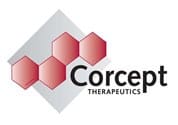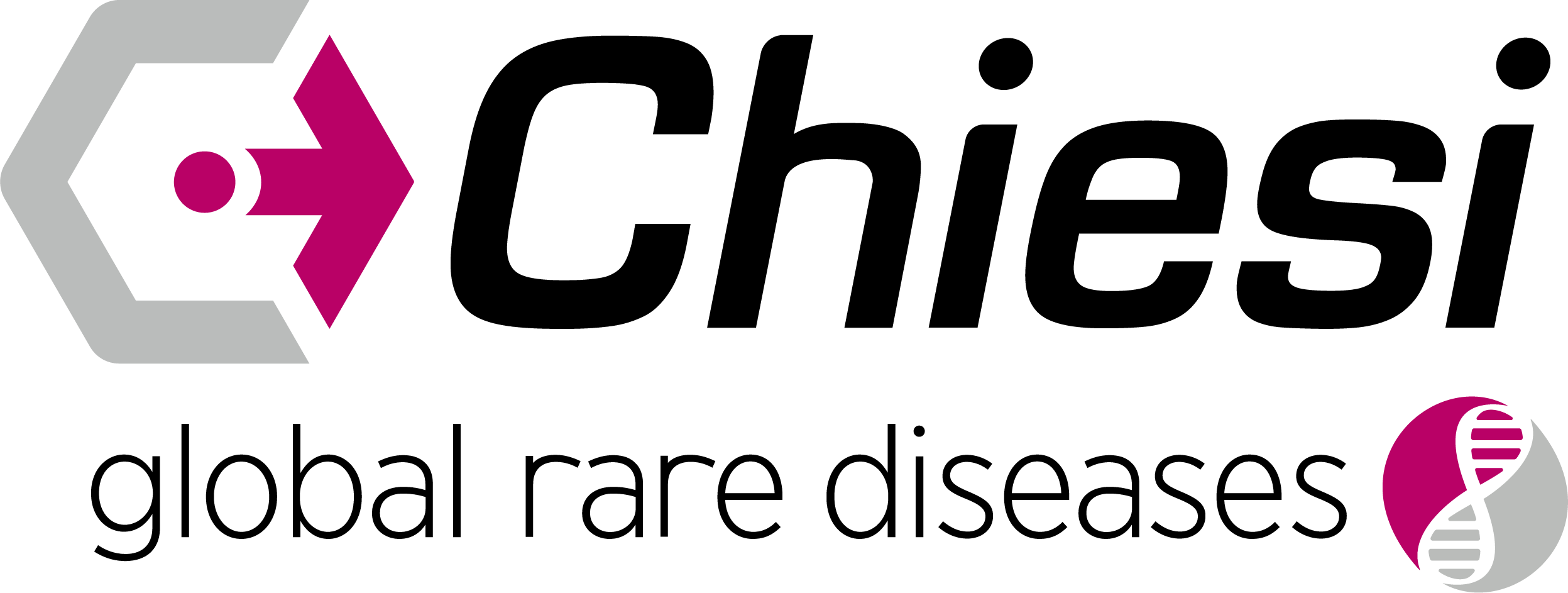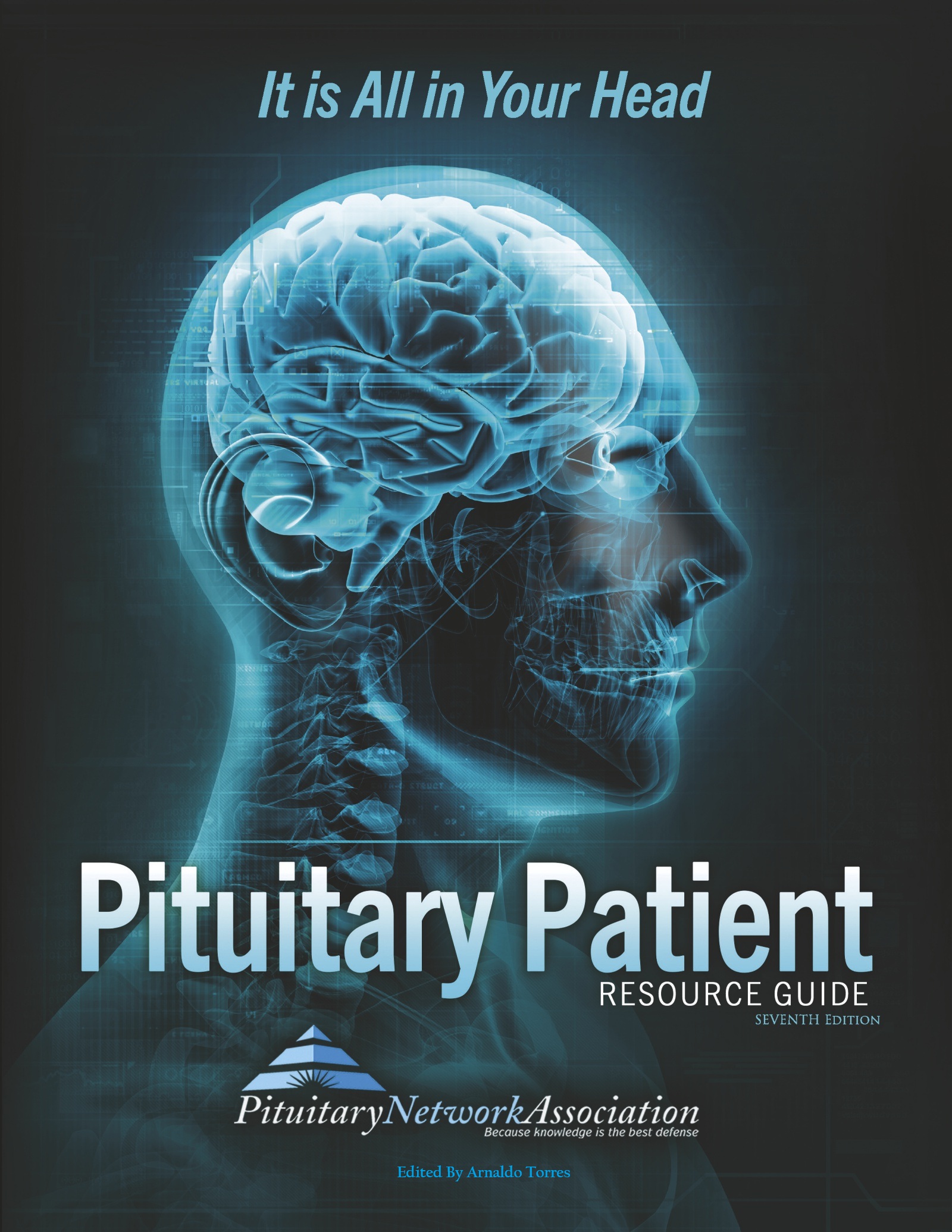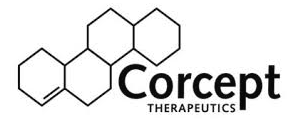News Articles February 2022
Written on 04 February 2022.
News Articles June 2022
Scott Hamilton Bikes 444 miles for Cancer Research
A longtime friend of the PNA, Olympic ice skater Scott Hamilton, recently finished a 444-mile bike ride to raise money for glioblastoma cancer research. Hamilton overcame a pituitary tumor and testicular cancer. The ride started in Natchez, Mississippi and ended in Nashville, Tennessee. Read more:
Dr. Melmed Honored For Career in Pituitary MedicinPatient story: Craniotomy to Remove Tumore
Dr. Shlomo Melmed, a member of the PNA since the beginning, recently became the first-ever recipient of the Transatlantic Alliance Award by the European Society of Endocrinology and the Endocrine Society. The award recognizes Dr. Melmed’s contributions to endocrine research in Europe and the United States.
Read more:
Blurry Vision Leads to Diagnosis of Cushing’s
The journal Cureus published a study out of Philadelphia in which a woman was diagnosed with Cushing’s after seeking help for blurry vision. Read the case abstract here:.
Read a summary from Cushing’s Disease News here:
Patient story: Craniotomy to Remove Tumor
An article in Newsweek looks at the case of a woman with a brain tumor adjacent to the pituitary, who underwent a craniotomy and earned a special nickname from her friends: “borg queen.” Read more here:
Patient story: Two Tumors
A patient tells her story in Cushing’s Disease News – of trying to maintain a positive attitude while battling one tumor after another. Read more:
PNA Highlights May 2022
PNA Highlights May 2022

If you are able to see the interrelatedness of mind and body, sensitivity towards your body becomes much sharper. Therefore, maintaining of good health also becomes easier.
Lobsang Tenzin

PNA Spotlight: Dr. Luma Ghalib
This month’s PNA Spotlight shines on Luma Ghalib, MD, F.A.C.E., a professional member of the PNA and an esteemed endocrinologist at The Ohio State University. Dr. Ghalib attended medical school at Baghdad University and completed a residency in internal medicine at Medical City Teaching Hospital in Baghdad. She then moved with her husband to New Zealand, where she did her initial training at Auckland Healthcare. She did a second residency in internal medicine at the Medical College of Ohio. Dr. Ghalib finished her endocrinology fellowship training at Chicago Medical School, part of Rosamund Franklin University. She then worked with Mary Washington Healthcare in Virginia as a consultant endocrinologist. Dr. Ghalib joined The Ohio State University in 2013 and she worked closely with neurosurgery and the ENT team to create a state-of-the-art Skull Base and Pituitary Clinic. She is currently an Assistant Professor in the Division of Endocrinology, Diabetes and Metabolism at The Ohio State University. She was kind enough to answer some questions from the PNA:

PNA Medical Corner: Quality of Life for Acromegalics
This month the PNA Medical Corner focuses on an article co-authored by two members of the PNA, Drs. Kevin Yuen and Ursula Kaiser. The study compared the quality of life for groups of acromegaly patients; one that received pharmacological therapy, the other that did not. They conclude that acromegalics who develop growth hormone deficiency have lower quality of life. They found that while pharmacologic or radiotherapy don’t lower a person’s quality of life, their overall quality of life is suboptimal despite biochemical control.
Pituitary. 2022 Apr 27.
doi: 10.1007/s11102-022-01224-0. Online ahead of print.
PMID: 35476257 DOI: 10.1007/s11102-022-01224-0

News Articles May 2022
Pituitary Journey: Cushing’s Disease
Today.com published a feature about a Georgia woman’s fight to for a diagnosis of Cushing’s disease. The article also quotes PNA member Dr. Nelson Oyesiku, who performed her surgery. Read more:
Pituitary Failure and COVID
An endocrinologist from a hospital in Bengalaru, India reports a slew of patients who experienced pituitary failure after recovering from COVID. Read the article in the Deccan Herald:
Wrestler Fights Acromegaly and Cushing’s
 Omos, a wrestler with WWE, has battled both acromegaly and partial Cushing’s Disease. An article in cagesideseats.com tells his story, and links to a recent TV appearance. Article: TV Interview:
Omos, a wrestler with WWE, has battled both acromegaly and partial Cushing’s Disease. An article in cagesideseats.com tells his story, and links to a recent TV appearance. Article: TV Interview:
Caption: Wrestler Jordan Omogbehin, known as Omos (DivaWorld/Wikimedia Commons)
5-year-old Colorado Boy Battles Craniopharyngioma
 An article in the Pikes Peak Courier tells the story of a courageous 5-year-old boy named Ronan Wood from Colorado Springs, who had surgery to remove a craniopharyngioma. Read more:
An article in the Pikes Peak Courier tells the story of a courageous 5-year-old boy named Ronan Wood from Colorado Springs, who had surgery to remove a craniopharyngioma. Read more:
Photo: Ronan Wood Go Fund Me
Pregnant Women And Thyroid Disorders
Pregnant Women Should Be Tested for Thyroid Disorder To Prevent Mental Deficiencies in Unborn Children
Bethesda, MD, August, 18, 1999 –The Endocrine Society today called for development of cost-effective thyroid function screening for all pregnant women based on results of a study reported in the New England Journal ofMedicine showing mental defects in children whose mothers had untreated hypothyroidism during their pregnancies.
The study, conducted by Dr. James Haddow of the Foundation for Blood Research, is published in the August 19, issue of the Journal. It indicates that untreated mild thyroid failure in a mother may adversely affect thefetus’ brain development, resulting in a child with reduced IQ scores and other measurements of intelligence,aptitude and visual motor skills.
“The report suggests that testing for thyroid stimulating hormone (TSH) should be carried out before or early in pregnancy to allow adequate treatment of the mother and the fetus,” said J. Larry Jameson, M.D., Ph.D.,President of The Endocrine Society, which issued a position statement with recommendations today following review of the study.
“The signs and symptoms of hypothyroidism are nonspecific and can be masked by pregnancy; blood tests are the best way to make such a diagnosis. It now appears that maternal thyroid hormone deficiency can be added to the list of correctable maternal conditions that can have an important impact on the fetus.”
Jameson noted that the new study’s findings are consistent with previous, less extensive research. They indicate that children born without hypothyroidism to mothers who had -undetected thyroid deficiencies may develop decreased mental capacities. In IS tests administered to 7- to 9-year-old children in this category, offspring of the hypothyroid mothers performed less well on all tests.
Jameson said further research is required to determine when screening should take place, the method of testing, and diagnostic criteria for maternal hypothyroidism, treatment guidelines and costs.
“For now, women with a personal or family history of thyroid disease, or with symptoms, should have their TSH levels tested when planning pregnancy or as soon as possible after conception,” he added.
ENDOCRINE SOCIETY POSITION STATEMENT
Maternal Thyroid Hormone Deficiency During Pregnancy:
Implications for Cognitive Development in the Child
It has been controversial whether low maternal thyroid hormone levels affect the developing fetus during pregnancy. A study published on August 19, 1999 in the New England Journal of Medicine, by James E. Haddow, MD and colleagues, reports that maternal thyroid deficiency causes developmental problems for the child. The Endocrine Society believes that this study has important implications for the management of thyroid disease before and during pregnancy.
Dr. Haddow’s research team retrospectively tested serum samples for evidence of hypothyroidism in a group of 2S,216 pregnant women who delivered babies between 1987 and 1990. From these samples, they identified 62 women who had been hypothyroid during pregnancy. Their children, who were ages 7 to 9 at the time of the study, were examined for possible neurological or psychological effects of hypothyroidism in utero. A battery of tests for attention, language, reading, and visual-motor performance were administered and the results were compared to those of a carefully matched control group of children whose mothers were not hypothyroid during pregnancy.
The children of the mothers who had been hypothyroid during pregnancy performed less well on all tests. Their mean 10 was reduced by 4 points compared to the control group. Larger IQ differences were seen in children born to a subset of mothers who never received any thyroid hormone treatment (mean IQ decreased by 7 points). Among this group, 19 percent of the offspring had an IQ less than 85 as opposed to 5 percent of children in the control group. This report confirms the findings of several earlier, smaller studies and it suggests that undiagnosed thyroid hormone deficiency during pregnancy 9 adversely affects brain development.
Hypothyroidism is relatively common, occurring in about I in 100 women during the child-bearing years. It becomes more common with age, a feature which is notable as a greater number of women are deferring pregnancy until they are older. The developing fetus is unable to make its own thyroid hormone during the early stages of pregnancy. Therefore, thyroid hormone must be transferred from mother to fetus across the placenta until the fetus’ own thyroid gland starts to function during the second trimester. The consequences of maternal thyroid hormone deprivation during pregnancy appear to be substantial and irreversible.
Ideally, hypothyroidism would be detected before ., or early in pregnancy, to allow adequate treatment of the mother and the fetus. Because the signs and symptoms of hypothyroidism (e.g., fatigue, dry skin, coarsening and loss of hair, weight gain, constipation, abnormal menses) are nonspecific, and can be masked by pregnancy, blood tests are the most efficacious means to make this diagnosis. It now appears that maternal thyroid hormone deficiency can be added to the list of correctable maternal conditions such as folate deficiency, blood group incompatibility, and gestational diabetes that have important impact on the health of the developing fetus.
The Endocrine Society recommends:
- A cost-effective strategy for screening pregnant women for hypothyroidism before or early during pregnancy. This will require further research to determine when screening should take place relative to conception, the method of testing, diagnostic criteria for maternal hypothyroidism, treatment guidelines, and the cost of screening.
- For now, women with a personal or family history of thyroid disease, or symptoms suggestive of hypothyroidism, should be screened using TSH levels when they are planning pregnancy, or as soon as possible after conception.
- Women who are found to be hypothyroid during pregnancy should begin thyroid hormone replacement immediately to provide adequate thyroid hormone levels to the developing fetus.
- Thyroid hormone requirements increase by about 25-50 percent during pregnancy. Consequently, women with known hypothyroidism should have their thyroid hormone levels monitored during pregnancy, and appropriate adjustments of thyroid hormone replacement should be made.
Patients with hormone-related disorders such as hypothyroidism are commonly referred to endocrinologists, who have the specialized training and experience necessary for effective evaluation and treatment.
PNA Highlights April 2022
PNA Highlights April 2022

When you take the time to cleanse your physical body of accumulated stress and toxicity, you are rewarded with increased vitality and optimal health.
Debbie Ford

PNA Spotlight: Dr. Jamie Van Gompel
This month the PNA Spotlight focuses on Dr. Jamie Van Gompel with the Mayo Clinic in Rochester, New York. There he serves as Professor in Neurosurgery and Otolaryngology; Assistant Program Director of Neurosurgery Residency; and consultant in the departments of neurosurgery and otorhinolaryngology.
Dr. Van Gompel started out at the University of Wisconsin with a Bachelor of Science degree in biochemistry, medical microbiology and immunology. He then proceeded to earn his M.D. there as well. He went on to complete a certificate program in clinical and translational research at the Mayo Clinic. He then did a fellowship in skull base and complex cranial surgery at the University of South Florida. He was kind enough to answer a series of questions from the PNA. Here are his answers:

Medical Corner: Complications from the Endoscopic Endonasal Approach
This month the PNA Medical Corner spotlights an article co-authored by Dr. Daniel Prevedello, a member of the PNA Board of Directors. The study looks at complications that arise from endoscopic endonasal pituitary surgery and suggests ways to minimize them.
Complications in Endoscopic Pituitary Surgery
Joshua Vignolles-Jeong 1, Daniel Kreatsoulas 2, Saniya Godil 3, Bradley Otto 4, Ricardo Carrau 5, Daniel Prevedello
Affiliations expand
PMID: 35365316 DOI: 10.1016/j.otc.2021.12.011
Abstract
Pituitary surgery has undergone rapid advancements in the last 30 years, secondary to improved surgical techniques and technologies, including those that allow endoscopic approaches. Although the endoscopic endonasal approach (EEA) offers minimally invasive access to the region of the pituitary gland, complications are a significant consideration for the combined otolaryngology-neurosurgery team that is preparing for a case. In this article, we discuss various complications related to the EEA in pituitary surgery and explore ways to plan for and avoid them during surgery.
Keywords: Complications; EEA; Endonasal endoscopic approach; Pituitary adenoma; Pituitary surgery.
Copyright © 2022 Elsevier Inc. All rights reserved.
Conflict of interest statement
Disclosure Dr. Prevedello has consulting relationships with Stryker, Integra, and BK Medical. He also receives royalties from technologies with KLS Martin, ACE Medical, and Mizuho. None of the other authors have disclosures.

News Articles April 2022
Endrocrine System Disrupted by COVID-19
An article in Medscape shows that ACE-2 receptors in endocrine glands are a gateway to the cells for COVID-19, particularly affecting patients with diabetes. Read more:
Promising Treatments for Cushing’s
Two articles in Cushing’s Disease News look at new treatments for Cushing’s: Tubastatin and Isturisa.
Read article about Tubastatin:
Pituitary Journey: Bride Undergoes Pituitary Surgery 5 Days After Wedding
An article written for St. Luke’s Hospital in Kansas City, Missouri tells the story of a young bride who had to put off her honeymoon in order to undergo pituitary surgery. Read more:
Cases of Early Puberty Surge During Pandemic
An article from the Washington Post and the Fuller Project looks at multiple studies that found a big increase in cases of early puberty during the pandemic. The causes are unclear but are thought to be related to increased stress, less physical activity and higher consumption of unhealthy foods during the lockdowns. Read more:
PNA Highlights March 2022
PNA Highlights March 2022

Care for life and physical health, with due regard for the needs of others and the common good, is concomitant with respect for human dignity.
Salvatore J. Cordileone

PNA Spotlight: Dr Kaisorn Chaichana
Kaisorn Chaichana, MD, FACS, FAANS, is a board-certified neurosurgeon who specializes in brain tumor surgery, namely skull base surgery, endoscopic surgery, and minimally invasive keyhole surgery. He graduated Alpha Omega Alpha from Johns Hopkins Medical School and completed his neurosurgical residency and skull base fellowship also at Johns Hopkins. Following graduation, he was on staff at Johns Hopkins as an Assistant Professor of Neurosurgery, Oncology, and Otolaryngology-Head & Neck Surgery, before joining Mayo Clinic in Jacksonville, Florida. He is now a Professor of Neurosurgery and Oncology, Director of Brain Tumor Surgery, Director of Pituitary and Skull Base Surgery, and Neurosurgery Program Director. He has published over 200 peer reviewed articles, edited over 75 book chapters, and edited 3 books. He has received numerous awards and accolades for his clinical work and research on brain tumors. Dr. Chaichana was kind enough to answer some questions from the PNA. His answers follow.
Medical Corner: Endoscopic Surgery for Sellar Arachnoid Cysts
This month the PNA Medical Corner features an article co-written by PNA cofounder Dr. Shereen Ezzat. The study looks at the use of endonasal endoscopic surgery to remove sellar arachnoid cysts and finds a simple cyst-opening technique and skull base reconstruction utilizing nasoseptal flaps can decrease the likelihood of a cerebrospinal fluid leak.
Link: https://pubmed.ncbi.nlm.nih.gov/35217229/
World Neurosurg
.2022 Feb 22
doi: 10.1016/j.wneu.2022.02.072. Online ahead of print.
Endoscopic treatment of sellar arachnoid cysts via a simple cyst-opening technique: Long-term outcomes from a single center
Aristotelis Kalyvas 1, Matthias Milesi 2, Matheus Leite 3, Kaiyun Yang 3, Leslie St Jacques 3, Allan Vescan 4, Ozgur Mete 5, Shereen Ezzat 6, Gelareh Zadeh 3, Fred Gentili 3
Affiliations expand
• PMID: 35217229 DOI: 10.1016/j.wneu.2022.02.072
Abstract

News Articles March 2022
Pituitary Story: Getting Your Life Back After Cushing’s Disease
A 23-year-old Florida college student underwent surgery for Cushing’s Disease. Read more:
Pituitary Hormone Linked to Alzheimer’s Disease
A study in the Journal Nature finds that blocking the FSH hormone in mice improves cognition. Read more:
Pituitary Carcinoma, Cushing’s and Covid-19
A study in the journal Endocrinology, Diabetes & Metabolism Case Reports looks at the case of a 43 year old man with pituitary carcinoma who developed a severe case of COVID-19 and Cushing’s Disease. Doctors used Block-replacement with suppression of endogenous steroidogenesis and supplementation of corticosteroid requirements. Read abstract:
Oxytocin and Sex Addiction
A study from The University of Cyprus found higher levels of the hormone oxytocin in men with hypersexual disorder, commonly known as sex addiction. The finding has implications for future drug therapy. Read more:
Man Recovers as Tumor Causes Increase in Height, Shoe Size
 A story in the Sun recounts the pituitary journey of a 52-year-old man in the U-K who grew 14 inches and 4 shoes sizes in 6 months’ time. Read more:
A story in the Sun recounts the pituitary journey of a 52-year-old man in the U-K who grew 14 inches and 4 shoes sizes in 6 months’ time. Read more:
Photo: Sarah and Andrew Smith Credit: Brain Tumour Research
News Articles February 2022
Ohio State Opens New Cancer Trials
Dozens of new cancer trials are now open at the Ohio State University Comprehensive Cancer Center – James Cancer Hospital and Solove Research Institute (OSUCCC – James). If you would like more information or are interested in referring a patient to one of these trials, call The James Line at 1-800-293-5066. To search all cancer clinical trials available at the OSUCCC – James, visit cancer.osu.edu
Pituitary Journey: Diagnosing Cushing’s
A column by Brandy Moody in Cushing’s Disease News recounts her six-month process, with multiple tests, an MRI and inferior petrosal sinus sampling that led to a diagnosis. Read more here:
Dr. Fred Gentili: In Memoriam
 The PNA would like to offer our condolences to the family and friends of Dr. Fred Gentili, a well- respected pituitary neurosurgeon in Toronto, Canada, and a longtime member of the the PNA. Dr. Gentili was a professor in the Department of Surgery at the University of Toronto. He served as the first Director of the Skull Base Centre at the University of Toronto and was a founding member of the North American Skull Base Society. Read more here:
The PNA would like to offer our condolences to the family and friends of Dr. Fred Gentili, a well- respected pituitary neurosurgeon in Toronto, Canada, and a longtime member of the the PNA. Dr. Gentili was a professor in the Department of Surgery at the University of Toronto. He served as the first Director of the Skull Base Centre at the University of Toronto and was a founding member of the North American Skull Base Society. Read more here:
FDA Declines to Approve Pfizer’s Once-Weekly Drug for Pediatric GH Deficiency
Reuters reports that the U.S. Food and Drug Administration has turned down Pfizer’s application to approve a once-weekly drug called Somatrogon to combat growth hormone deficiency in children. Read more here:
However the same drug was just approved in Japan. Read more here:
Hypothyroidism and Insomnia
An article in Medical News Today looks at the link between low thyroid levels and subclinical insomnia. Often doctors associate sleeplessness with over-active thyroid, but some research suggests it can occur in patients with under-active thyroid. Read more:
Oral Octreotide Found Effective Against Acromegaly For 62 Weeks
An article in Healio reports on the results of the MPOWERED trial, which found that a 26-week course of oral octreotide worked to control acromegaly in almost all people after 62 weeks. Read more:
News Articles January 2022
Pituitary Story: Surgery Delayed Years by COVID, Staffing Shortages
A Canadian woman, diagnosed with a prolactinoma two years ago, is still waiting for surgery, which has been delayed by COVID and by a shortage of workers in the medical field. Read more:
Researchers Study Biomarkers to Assess Invasiveness of Pituitary Tumors
A study in the journal Neuropsychiatric Disease and Treatment, done by researchers in China, find that certain biomarkers in the blood may shed light on the invasiveness of a pituitary tumor. In the future, this may help endocrinologists make an earlier diagnosis. Read more:
TV Series Features 22-Year-Old Pituitary Patient With The Body of a Child
A series on TLC debuting in January called “I am Shauna Rae” follows the life of a 22-year-old woman from Pittsburg, PA who is 3’10” and resembles an 8-year-old child. She battled cancer as an infant and chemotherapy caused her pituitary gland to go dormant. Read more:
Pituitary Patient Undergoes Transsphenoidal, then Transcranial Surgery
A story in the Times of India tells the story of a woman from Jaipur who underwent transcranial surgery to remove a recurring pituitary tumor. She had previously had transsphenoidal surgery to remove her first pituitary tumor. Read more:
Excessive Thirst Leads to Diagnosis of Pituitary Tumor
An article in the New Zealand Herald tells the story of an Australian mother of two who was diagnosed with a pituitary tumor after she developed an insatiable thirst. Read more:
Pituitary Story: Don’t Ignore the Symptoms
Paris Dancy’s latest columns in Cushing’s Disease News warn patients about the Cushing’s symptoms that he ignored prior to his diagnosis, and look forward to a healthier new year Read more here: and Here
Available Now!
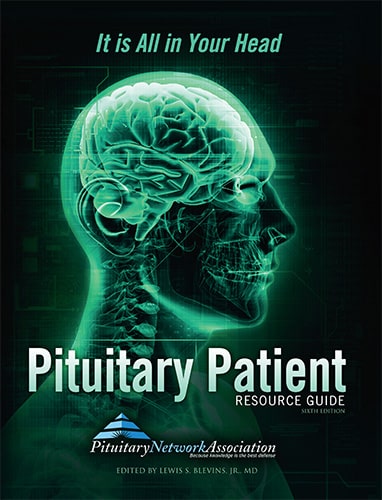
The Pituitary Patient Resource Guide Sixth Edition is now available! Be one of the first to have the most up-to-date information. The Pituitary Patient Resource Guide a one of a kind publication intended as an invaluable source of information not only for patients but also their families, physicians, and all health care providers. It contains information on symptoms, proper testing, how to get a diagnosis, and the treatment options that are available. It also includes Pituitary Network Association's patient resource listings for expert medical care.

Xeris Pharmaceuticals is valued member of the PNA




